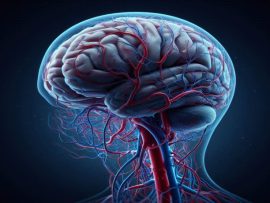Abstract Background Neurological complications significantly contributed to mortality in patients with acute respiratory distress syndrome (ARDS) supported by venovenous extracorporeal membrane oxygenation (VV ECMO). Early fluctuations in arterial partial pressure..
Read MoreAbstract Background: We used machine learning models incorporating rich electronic medical record (EMR) data to predict neurological outcomes after venoarterial extracorporeal membrane oxygenation (VA‑ECMO). Methods: This was a retrospective..
Read MoreAbstract Background: To investigate the impact of hyperoxia that developed immediately after extracorporeal membrane oxygenation (ECMO)-assisted cardiopulmonary resuscitation (ECPR) on patients’ short-term neurological outcomes after out-of-hospital cardiac arrest (OHCA). Methods:..
Read MoreAbstract Hyperoxemia commonly occurs in clinical practice and is often left untreated. Many studies have shown increased mortality in patients with hyperoxemia, but data on neurological outcome in these patients..
Read MoreAbstract Importance Out-of-hospital cardiac arrest (OHCA) has poor outcome. Whether intra-arrest transport, extracorporeal cardiopulmonary resuscitation (ECPR), and immediate invasive assessment and treatment (invasive strategy) is beneficial in this setting remains uncertain...
Read MoreAbstract Purpose: Targeted temperature management (TTM) is a standard of care in patients after cardiac arrest for neuroprotection. Currently, the effectiveness and efficacy of TTM after extracorporeal cardiopulmonary resuscitation (ECPR)..
Read More






